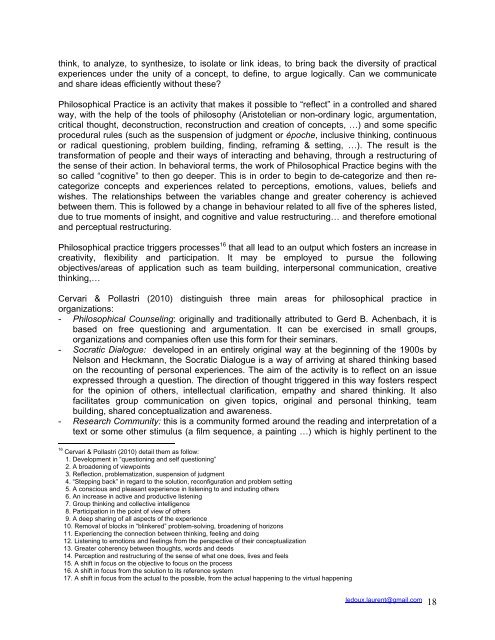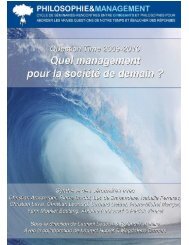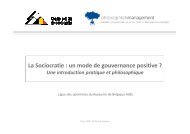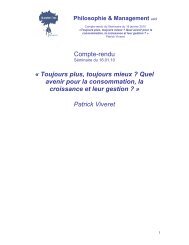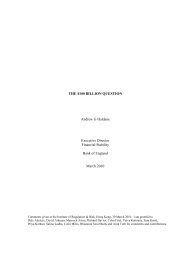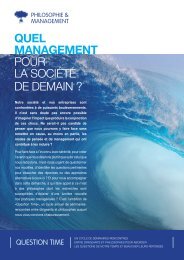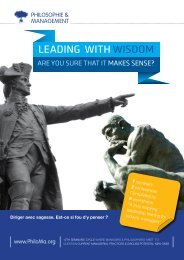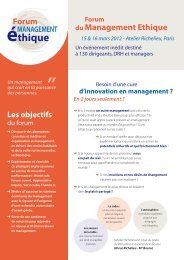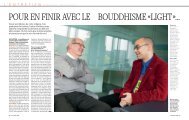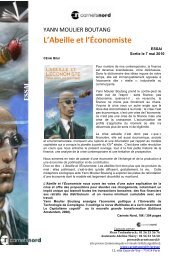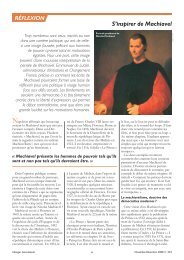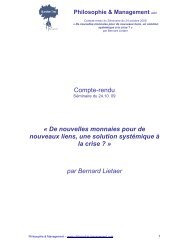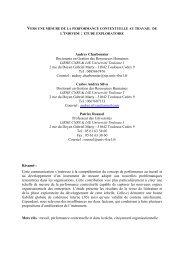Philosophy: The Managers - Philosophie Management
Philosophy: The Managers - Philosophie Management
Philosophy: The Managers - Philosophie Management
Create successful ePaper yourself
Turn your PDF publications into a flip-book with our unique Google optimized e-Paper software.
think, to analyze, to synthesize, to isolate or link ideas, to bring back the diversity of practical<br />
experiences under the unity of a concept, to define, to argue logically. Can we communicate<br />
and share ideas efficiently without these?<br />
Philosophical Practice is an activity that makes it possible to “reflect” in a controlled and shared<br />
way, with the help of the tools of philosophy (Aristotelian or non-ordinary logic, argumentation,<br />
critical thought, deconstruction, reconstruction and creation of concepts, …) and some specific<br />
procedural rules (such as the suspension of judgment or époche, inclusive thinking, continuous<br />
or radical questioning, problem building, finding, reframing & setting, …). <strong>The</strong> result is the<br />
transformation of people and their ways of interacting and behaving, through a restructuring of<br />
the sense of their action. In behavioral terms, the work of Philosophical Practice begins with the<br />
so called “cognitive” to then go deeper. This is in order to begin to de-categorize and then recategorize<br />
concepts and experiences related to perceptions, emotions, values, beliefs and<br />
wishes. <strong>The</strong> relationships between the variables change and greater coherency is achieved<br />
between them. This is followed by a change in behaviour related to all five of the spheres listed,<br />
due to true moments of insight, and cognitive and value restructuring… and therefore emotional<br />
and perceptual restructuring.<br />
Philosophical practice triggers processes 16 that all lead to an output which fosters an increase in<br />
creativity, flexibility and participation. It may be employed to pursue the following<br />
objectives/areas of application such as team building, interpersonal communication, creative<br />
thinking,…<br />
Cervari & Pollastri (2010) distinguish three main areas for philosophical practice in<br />
organizations:<br />
- Philosophical Counseling: originally and traditionally attributed to Gerd B. Achenbach, it is<br />
based on free questioning and argumentation. It can be exercised in small groups,<br />
organizations and companies often use this form for their seminars.<br />
- Socratic Dialogue: developed in an entirely original way at the beginning of the 1900s by<br />
Nelson and Heckmann, the Socratic Dialogue is a way of arriving at shared thinking based<br />
on the recounting of personal experiences. <strong>The</strong> aim of the activity is to reflect on an issue<br />
expressed through a question. <strong>The</strong> direction of thought triggered in this way fosters respect<br />
for the opinion of others, intellectual clarification, empathy and shared thinking. It also<br />
facilitates group communication on given topics, original and personal thinking, team<br />
building, shared conceptualization and awareness.<br />
- Research Community: this is a community formed around the reading and interpretation of a<br />
text or some other stimulus (a film sequence, a painting …) which is highly pertinent to the<br />
16<br />
Cervari & Pollastri (2010) detail them as follow:<br />
1. Development in “questioning and self questioning”<br />
2. A broadening of viewpoints<br />
3. Reflection, problematization, suspension of judgment<br />
4. “Stepping back” in regard to the solution, reconfiguration and problem setting<br />
5. A conscious and pleasant experience in listening to and including others<br />
6. An increase in active and productive listening<br />
7. Group thinking and collective intelligence<br />
8. Participation in the point of view of others<br />
9. A deep sharing of all aspects of the experience<br />
10. Removal of blocks in “blinkered” problem-solving, broadening of horizons<br />
11. Experiencing the connection between thinking, feeling and doing<br />
12. Listening to emotions and feelings from the perspective of their conceptualization<br />
13. Greater coherency between thoughts, words and deeds<br />
14. Perception and restructuring of the sense of what one does, lives and feels<br />
15. A shift in focus on the objective to focus on the process<br />
16. A shift in focus from the solution to its reference system<br />
17. A shift in focus from the actual to the possible, from the actual happening to the virtual happening<br />
ledoux.laurent@gmail.com<br />
18


